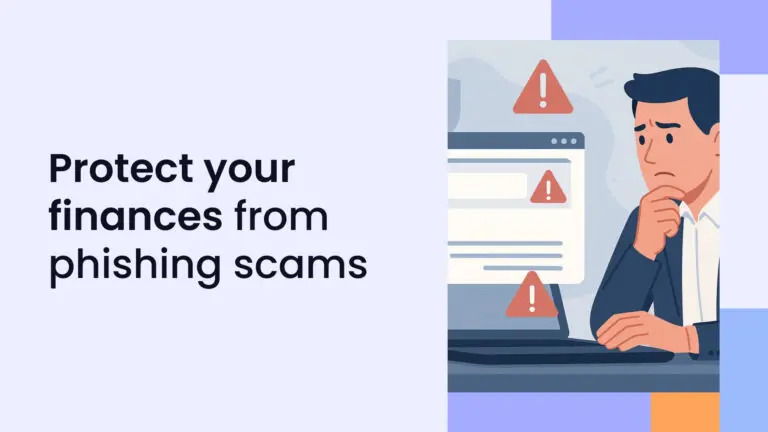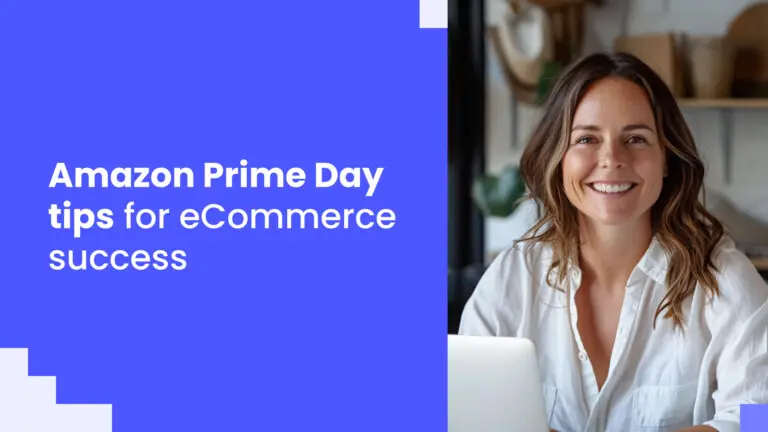If you’re an Amazon seller or you plan on becoming one, then you may have concerns about reporting business taxes. EIN or Tax ID’s are necessary for some and unnecessary for others. We’re here to explain the difference, so you can make an informed decision of your own.
So, do you need an EIN to sell on Amazon? There’s not one simple answer to this question. It depends on the type of business ownership that you have or are looking to create. With that in mind, we’re going to discuss what an EIN is, the different types of business ownership, which ones require an EIN, how to register for an EIN, and how to start your Amazon business.
Read on to learn more about:
- What is an EIN?
- Types of business ownership
- Business types that do not require an EIN
- Business types that require an EIN
- How do you get an EIN?
- How do you become a seller on Amazon?
- Growing your eCommerce business
What Is an EIN?
An EIN, or Employer Identification Number, is a number that is used to identify your business. Each EIN is unique and is nine digits long. It is necessary for tax purposes.
When you’re born, you’re granted a social security number. This is a one-of-a-kind number that identifies you. You give this number to your employers and write it on your personal tax documents every year to prove that you are who you say you are.
An EIN, which is also known as a Federal Tax Identification Number or Tax ID, has the same purpose. It’s so you and others know that your business is truly your business. If you end up needing an EIN, then this is the number you will give to Amazon.
This number exists to identify your business and separate your business taxes from your personal ones. Depending on your business, you may have to report your taxes quarterly, rather than just once a year as you do with your personal taxes.
Types of Business Ownership
Before you can determine whether or not you need an EIN, you need to know the different types of business ownership. Each type of business has its own set of guidelines, and deciding on one depends on your business goals.
Subscribe to the eCommerce newsletter for
top industry insights
Do you run a small dropshipping business on your own? Then you probably don’t need one. If you are working with several other people at a corporation, however, then yes, you most likely need a Tax ID.
Let’s dive into the types of business ownership so you can decide which one is best for you or determine which one describes what you already have in place.
1. Sole proprietorship
If you work alone, or are listed as “individual” on your business license, then you are the sole proprietor. A sole proprietor doesn’t need approval from a partner or board members. You make all the decisions involving the business. This is the easiest type of business to manage among the different business ownership options.
There’s often less paperwork and taxes are a breeze in comparison. The downside, as there are always a few, is that if the business fails to pay its debts or gets sued, then the owner’s personal finances are in jeopardy, as well as the business’s. There’s no separation between the two, meaning that the individual has no way of protecting their finances.
2. Partnership
A partnership is a business owned and operated by two or more people. Typically, they are divided into two types of liability partnerships.
- Limited liability partnership: This type of partnership states that no matter how many losses one partner acquires, the other partners are not financially responsible. It’s a safe option to be sure, especially when your business involves several people.
- Unlimited liability partnership: In this partnership, all partners are responsible for losses, even if it was the fault of just one. You wouldn’t want to be that guy, right? All partners share the risk and responsibility in an unlimited liability partnership.
The great advantage of creating or joining a partnership is the access to knowledge and information. Their expertise can be beneficial, as are their financial contributions.
3. Limited Liability Company (LLC)
If you’re one individual or several individuals working together, and want to separate your personal assets from your business ones, then this is the route to take. A limited liability company, or LLC, is a whole other beast when it comes to filing taxes and gathering funds, but if you’re in a risky business, then protecting yourself is worth the effort. You can even earn tax deductions from your losses.
No matter how big or small your business is, you can form an LLC at any time. It just takes time and effort to do so. For example, if your business goes bankrupt, your home mortgage won’t be affected and neither will your car be repossessed. Everything will be as it was, other than the failed business, that is.
4. C corporation
This type of ownership involves a group of people coming together to manage a business. The big difference between a C corporation and other types of business is that the owners’ or shareholders’ assets and liabilities are separated from the business. That means that if anything goes wrong, they only lose the money that they invested, not the whole business. The owners may be subject to double taxation, though, because they have to report on both ends instead of just one.
This is the type of business that encourages others to buy stock in their corporation. People who buy into the stocks are labeled as part-owners. The downsides include less control due to the number of people involved and restricted access to capital markets.
5. S corporation
This type of business ownership is very similar to a C corporation. An S corporation is a group of people who come together to manage a business. There are investors and shareholders who add to the company’s capital. The main difference, really, is that an S corporation offers a pass-through taxation method. This means that profits and losses flow directly to the owners, which are then recorded on their personal taxes. That makes S corporation ownership a good choice for small businesses, since they have greater flexibility with their income.
Business Types That Do Not Require an EIN
If you’re just starting out and only sell a few simple products, you may not want or need a Tax ID. It comes down to your business plan and personal preference. In addition, each state has different guidelines and processes, so one ownership type might be more beneficial in one state and not another.
Speaking with an accountant can clear up any concerns you may have. Of course, researching EINs and business ownership will help you understand the process a little better. You’ll be more prepared when you go in to talk with a professional, which can be a great help when they start throwing around business jargon.
Here are the types of business ownership that do not require an EIN.
1. Sole proprietorship
More often than not, you won’t want a Tax ID if you’re a sole proprietor. People who list their business as “sole ownership” are probably starting out small and are learning the tricks of the trade. You can always change both your ownership type and EIN status later if you find that you are growing or want to include more people in your ventures.
As long as you’re the only owner and aren’t planning rapid expansion, an EIN is unnecessary. If you are able to manage your business capital on your own, with little effort, then you might as well choose the easier tax route, and report the earnings on your personal taxes. However, if you earn over a certain amount each year, then you will need to report quarterly taxes. This figure varies, depending on where you live.
2. Single-member LLC
An LLC is often the best option for businesses with multiple partners involved, or those that are thriving and growing to include more inventory and products. However, even if you’re the sole owner of your business, you can still classify it as an LLC. This is a good choice if you are concerned about your personal assets due to the type of goods you sell or simply because you’re a person who believes that it’s better to be safe than sorry.
You don’t need an EIN if you are the only member of your LLC. This arrangement is just like a sole proprietorship, but you must report your taxes differently and your personal assets are separate from the business ones. Amazon won’t mind one bit if you want to protect yourself, no matter how small you’re starting out.
Business Types That Require an EIN
Popular content
- 14 strategies to improve your eCommerce business’s financial health
- 50+ ChatGPT prompts to elevate your eCommerce business
- A guide to pricing your product on Amazon
- 5 marketing metrics all eCommerce businesses should track
- All about Amazon PPC
An EIN is meant for business ownership types that involve multiple people. When multiple people are involved, you probably want an ownership that includes them. The list below provides those types of ownership. Each of them require a Tax ID to report on taxes and your Amazon Seller paperwork.
Remember, an EIN is the identification of your business, similar to a serial number on a product. If you have an EIN, you won’t need to use your social security number as the identifying figure on your business. With this said, let’s delve into the business types that require an EIN.
1. Partnership
Whether your partnership is just that or you have an LLC-partnership, you will need an EIN. In the eyes of the IRS, you have grown past the point where a single social security number will suffice.
It’s a good idea to have a Tax ID anyway, as it will help you separate your personal and business finances and operations. You wouldn’t want your partner to be giving out your personal information would you? Identity protection is a must in the business world.
As a partnership, you’ll work together to create the business license, EIN registration, bank account(s), and store. And you’ll get to enjoy some great tax advantages in the process.
2. C corporation
A C corporation, with or without an LLC, is required to have an EIN. With investors coming in by the dozens, you want to be protected. An EIN is the perfect first step. This is a company with many moving wheels, and it’s nearly impossible for one person to keep up with all the comings and goings. Capital is brought in quickly and can just as quickly grow or fall.
That’s why having an LLC in place for this type of ownership is a good idea, as well. It will protect your personal assets when the business isn’t doing well. Just be wary of double taxation. You will need to report your earnings on your personal taxes with your SSN and separately with your EIN, so make sure you see a professional on how to manage this.
3. S corporation
An S corporation, with or without an LLC, is required to have an EIN. Just like with C corporations, there is a lot going on in the company. A Tax ID will guarantee that everything remains separate and recorded properly. Nothing is worse than blurred lines.
Remember that this is the type of business ownership that offers pass-through taxation, so your business income is added directly to your personal taxes. Make sure to speak to an accountant, so you can choose the most beneficial tax method for your unique situation. There’s a lot of flexibility with this business type, so take advantage of it.
4. Limited Liability Company (LLC)
Unless the LLC is owned and operated by just one person, an EIN is required. An LLC can own any of the other business types, too, with the exception of a sole proprietorship. This is the choice that guarantees your personal assets won’t be affected by bankruptcy, lawsuits, or partnership losses.
It’s a smart decision if you’re going into business with others, especially if they are friends or family. You’ll want to make sure you and everyone else involved is properly protected, no matter what happens. An LLC may be a bit more complex to form, but your protection and peace of mind is worth a little extra paperwork.
How Do You Get an EIN?
It’s easy enough to obtain a Tax ID. You can apply online through the IRS website. The basic requirements include that the business must be located in the United States, you need a valid taxpayer ID number (social security number), and a business license.
You would have had to decide on your business ownership type while registering for a business license. From there, applying for an EIN simply involves some tedious paperwork. If you’re the sole owner, then it will be a piece of cake. When you have multiple people involved, such as partners for the corporation, then you need the exact number of members you have, and possibly their information. For those who don’t want to apply online, you can also get your EIN through email or fax the paperwork to the IRS. You’ll find the requirements in more detail on their website.
How Do You Become a Seller on Amazon?
Whether your business type requires an EIN or not, you can sell products on Amazon. Once you’ve decided on a business type, you have the license, and possibly an EIN, it’s time to open up your store on Amazon.
At this point, the real work has just begun. Gathering the necessary paperwork was nothing compared to running a business and, hopefully, growing it. However, if you put in the time and effort, you can find great success on Amazon’s massive marketplace.
Let’s go over the basics of opening up your store, so you can become an Amazon seller.
1. Choose your business model
Deciding on a business model is the vital first step to this process. It all depends on the start-up funds you have and the time and effort you’re willing to lend to your eCommerce business.
Amazon will ask you to choose between retail arbitrage, online arbitrage, dropshipping, manufacturers and wholesalers, or private label. Some will require you to spend money on bulk inventory while others won’t cost anything at all. Review their list and the options available to you, so you can decide the best course of action.
2. Find a product to sell
Choosing a product to sell can be a time consuming process. You want to pick something that will sell, an item with plenty of potential buyers that isn’t already saturated on Amazon.
Many experts advise choosing a product that you would want to buy but struggle to find, or something that you are passionate about. Amazon provides you with lots of advice, and there are other tools out there like Junglescout, to help you make this decision, too. It’s all about what kind of business you want to be. What is your niche? Is it unique? Will it trend or is it trending? Will the profits be worthwhile? These are great questions to ask during the process.
3. Develop your product
This is where you need to get creative. You want your store to stand out and that means selling something no one else does or putting your own spin on something that already exists. You can hire designers to help out or do it yourself, and don’t be afraid to ask the manufacturers what they think of your ideas. They may have some insight on how to improve the design, making it better than it was before. Try to set yourself apart from the competition.
4. Find a supplier
Finding the right supplier for your product can be difficult and requires some negotiation. Some won’t supply the things you need and others may charge too much for production or have unreasonable shipping requirements.
Looking at your local supplier is a good place to start, as you will most likely save on time and shipping. Don’t forget to haggle during the process. If you order in bulk, they may give you a discount, especially if you’re looking to stock up your start-up.
5. Start selling
You’re finally ready to start selling your product and bringing in some revenue! This means maintaining a budget that includes permanent working capital, net working capital, and temporary working capital. You may need to look into external funding options in order to keep your store in stock and stay on top of all of your expenses.
Now’s the time to advertise, build an email list, and create and post on your social media accounts. Make sure your listings and websites are functioning well and are user friendly. You may also want to offer special deals and discounts to get your store off the ground. This is the time to push and reach for the stars.
Growing Your ECommerce Business
EIN’s, LLC’s, and Amazon stores may seem overwhelming at first. Don’t worry, everyone feels the same way at the start. It’s important to take it step-by-step and ask for help when you need it. Reach out to tax experts and fellow business owners, as they have great advice to share with you. If you’re unsure of which path is right for you, take your time to do some research and think about your options. There’s no need to rush the process, especially with all the paperwork that has to be filled out and approved. Enjoy the journey, and good luck on your future ventures.
There’s another resource you need in order to successfully grow your Amazon business: working capital. If you’re lacking cash flow to stay in stock and pay all of your business expenses, 8fig can help.
We offer a unique eCommerce platform on which you can plan, manage, and fund your business. Our funding is continuous and aligned to your supply chain expenses, which means that instead of one lump-sum, we infuse capital into your business according to your supply chain needs. Plus, 8fig Growth Plans are flexible, so you can change any aspect of your payments and remittances in real time to reflect the natural ebbs and flows of your business.
Ready to reach your full potential? Sign up for an 8fig Growth Plan today!
Subscribe to the eCommerce newsletter for
top industry insights
to our blog
Read the latest
from 8fig

Learn how to detect scams, avoid them, and report suspicious activity. What are phishing scams? Phishing scams are fake messages — usually emails or texts — that try to trick you into sharing personal or financial information by pretending to be a trusted company. They often look real, but their goal is to steal your […]

Amazon Prime Day is one of the biggest selling events of the year. Here’s how sellers can prepare for Prime Day and maximize their profits.

AI is quietly reshaping eCommerce. Karma’s Hadas Bar-Ad explores how today’s sellers are using intelligent tools to streamline operations, boost efficiency, and drive smarter growth.
